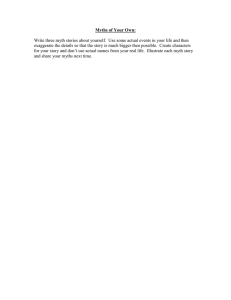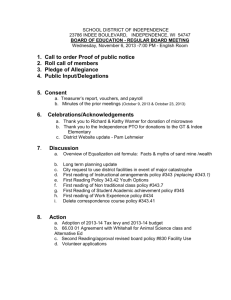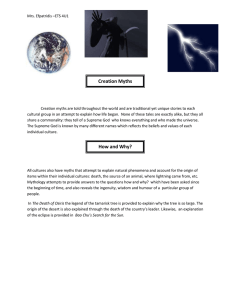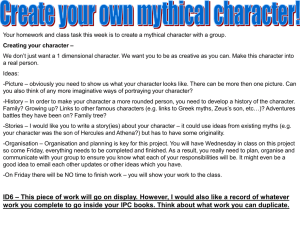TOK Notes: September 5, Period 3: History Note Taker: Mike Pensky
advertisement
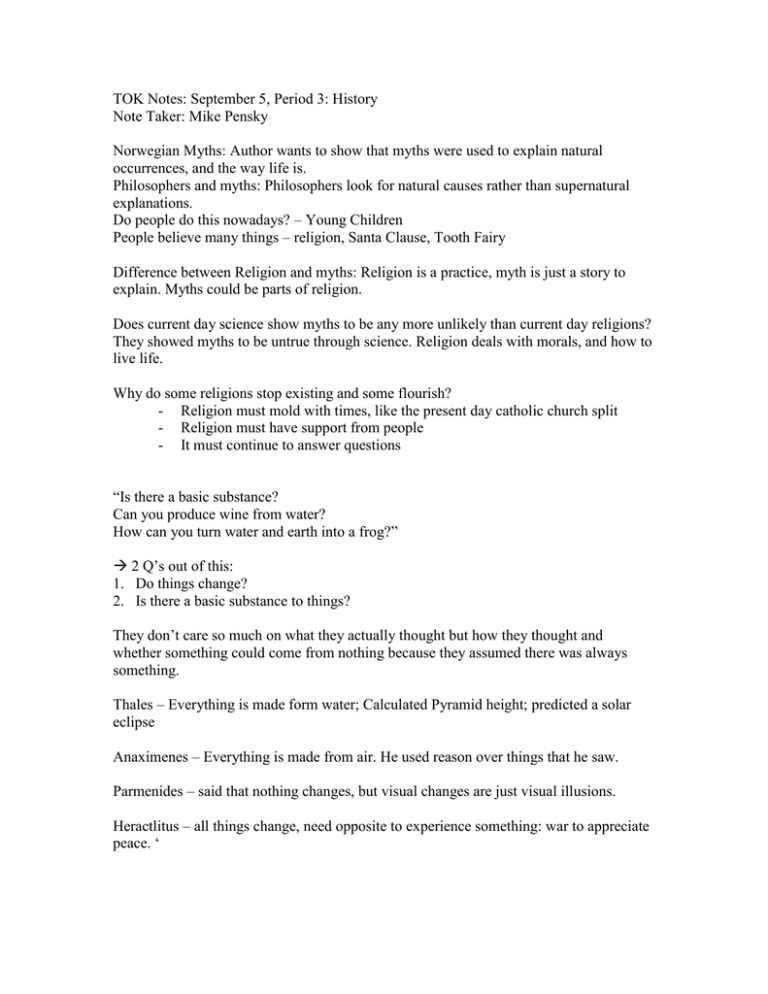
TOK Notes: September 5, Period 3: History Note Taker: Mike Pensky Norwegian Myths: Author wants to show that myths were used to explain natural occurrences, and the way life is. Philosophers and myths: Philosophers look for natural causes rather than supernatural explanations. Do people do this nowadays? – Young Children People believe many things – religion, Santa Clause, Tooth Fairy Difference between Religion and myths: Religion is a practice, myth is just a story to explain. Myths could be parts of religion. Does current day science show myths to be any more unlikely than current day religions? They showed myths to be untrue through science. Religion deals with morals, and how to live life. Why do some religions stop existing and some flourish? - Religion must mold with times, like the present day catholic church split - Religion must have support from people - It must continue to answer questions “Is there a basic substance? Can you produce wine from water? How can you turn water and earth into a frog?” 2 Q’s out of this: 1. Do things change? 2. Is there a basic substance to things? They don’t care so much on what they actually thought but how they thought and whether something could come from nothing because they assumed there was always something. Thales – Everything is made form water; Calculated Pyramid height; predicted a solar eclipse Anaximenes – Everything is made from air. He used reason over things that he saw. Parmenides – said that nothing changes, but visual changes are just visual illusions. Heractlitus – all things change, need opposite to experience something: war to appreciate peace. ‘ Nothing changes and everything changes combines: Empedocles – 4 roots = earth, water, air, fire. Everything is made of these 4, so they don’t change, but their mixture changes. This corresponds to elements in present day. – analogy of how it works = paint and baking elements. “Love” – puts things together, “Strife” takes it apart Anaxagoras – did not believe in Empedocles’ belief. Believed that things can be broken down into tiny parts, but they all have information that pertains to the entire whole. Ability to ask Questions is what a philosopher does.
